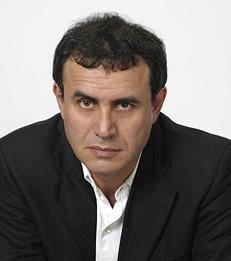Opinion
Leaders and Laggards in the Post-pandemic Recovery
—

By Nouriel Roubini
After the most severe global recession in decades, private and official forecasters are increasingly optimistic that world output will recover strongly this year and thereafter. But the coming expansion will be unevenly distributed, both across and within economies. Whether the recovery is V-shaped (a strong return to above-potential growth), U-shaped (a more anemic version of the V), or W-shaped (a double-dip recession) will depend on several factors across different economies and regions.
With the coronavirus still running rampant in many countries, one key question is whether the emergence of virulent new strains will trigger repeated stop-and-go cycles, as we’ve seen in some cases where economies re-opened too soon. One particularly ominous possibility is that more vaccine-resistant variants appear, heightening the urgency of vaccination efforts that have so far been too slow in many regions.
Beyond the virus, there are a number of related economic risks to consider. A recovery that is slow or insufficiently robust could result in permanent scarring if too many firms go bust and labor markets start exhibiting hysteresis (when long-term unemployment renders workers unemployable owing to an erosion of skills). Another question is how much deleveraging there will be among highly indebted firms (small and large) and households, and whether this effect will be fully offset by the release of pent-up demand as consumers spend down pandemic-era savings.
Read the full Project Syndicate article.
___
Nouriel Roubini is a Professor of Economics and International Business and the Robert Stansky Research Faculty Fellow.
With the coronavirus still running rampant in many countries, one key question is whether the emergence of virulent new strains will trigger repeated stop-and-go cycles, as we’ve seen in some cases where economies re-opened too soon. One particularly ominous possibility is that more vaccine-resistant variants appear, heightening the urgency of vaccination efforts that have so far been too slow in many regions.
Beyond the virus, there are a number of related economic risks to consider. A recovery that is slow or insufficiently robust could result in permanent scarring if too many firms go bust and labor markets start exhibiting hysteresis (when long-term unemployment renders workers unemployable owing to an erosion of skills). Another question is how much deleveraging there will be among highly indebted firms (small and large) and households, and whether this effect will be fully offset by the release of pent-up demand as consumers spend down pandemic-era savings.
Read the full Project Syndicate article.
___
Nouriel Roubini is a Professor of Economics and International Business and the Robert Stansky Research Faculty Fellow.
